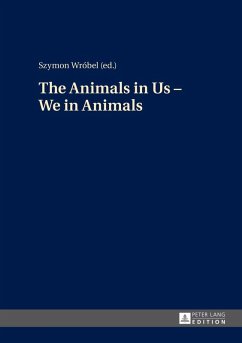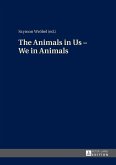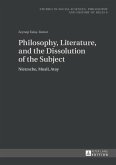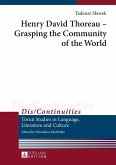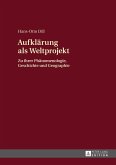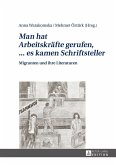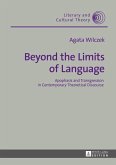In art and literature, animals appear not only as an allegoric representation but as a reference which troubles the border between humanity and animality. The aim of this book is to challenge traditional ways of confronting animality with humanity and to consider how the Darwinian turn has modified this relationship in postmodern narratives. The subject of animality in culture, ethics, philosophy, art and literature is explored and reevaluated, and a host of questions regarding the conditions of co-existence of humans and animals is asked: Should discourse ethics now include entities that initially seemed mute and were excluded from discussions? Does the modern animal rights movement need a theology, and vice versa, is there a theology that needs animals? Are animals in literature just metaphors of human characters, or do they reveal something more profound, a direction of human desires, or a fantasy of transgressing humanity? This book provides answers and thus gives a new impetus to a so far largely overlooked field.
Dieser Download kann aus rechtlichen Gründen nur mit Rechnungsadresse in A, B, BG, CY, CZ, D, DK, EW, E, FIN, F, GR, HR, H, IRL, I, LT, L, LR, M, NL, PL, P, R, S, SLO, SK ausgeliefert werden.
«In his Introduction to this book, Szymon Wróbel writes about a peculiar animal turn taking place, suggesting that there has been a real breakthrough in comparison with the previous studies of the relation between what is human and what is animal. The existence of this breakthrough has been attested by the articles contained in this volume, which refer both to the context of tradition and the contemporary approaches. It is the first publication of its kind that juxtaposes what is human and what is animal in such a wide and varied way.» (Professor Pawel Dybel, University of Warsaw and Polish Academy of Sciences)
«The volume is devoted to the topical subject matter of Animal Studies in the context of relations between a human and an animal. The texts it contains comprehensively present the entire semantic complexity of this relation, from the historical aspects, concerning the perception of animals in the western, philosophical and cultural tradition, through its theological and religious aspects, anthropological and ethical, linguistic, to the contemporary - philosophical and literary aspects. In this way, the book investigates the phenomenon of our increasing ethical sensitivity towards animals, which defines our contemporary cultural experience. But, of course, it does not only simply postulate a change in our relationship to animals - although this ethical message is very clear - but above all, and this defines its essential philosophical stakes, it postulates the fundamental reflection on and reevaluation of the role, which animality plays in our experience of ourselves: because this relation proves to be the relation towards ourselves, revealing the new dimension of our own, complex humanity». (Professor Pawel Pieniazek, University of Lódz (Poland))
«The volume is devoted to the topical subject matter of Animal Studies in the context of relations between a human and an animal. The texts it contains comprehensively present the entire semantic complexity of this relation, from the historical aspects, concerning the perception of animals in the western, philosophical and cultural tradition, through its theological and religious aspects, anthropological and ethical, linguistic, to the contemporary - philosophical and literary aspects. In this way, the book investigates the phenomenon of our increasing ethical sensitivity towards animals, which defines our contemporary cultural experience. But, of course, it does not only simply postulate a change in our relationship to animals - although this ethical message is very clear - but above all, and this defines its essential philosophical stakes, it postulates the fundamental reflection on and reevaluation of the role, which animality plays in our experience of ourselves: because this relation proves to be the relation towards ourselves, revealing the new dimension of our own, complex humanity». (Professor Pawel Pieniazek, University of Lódz (Poland))

